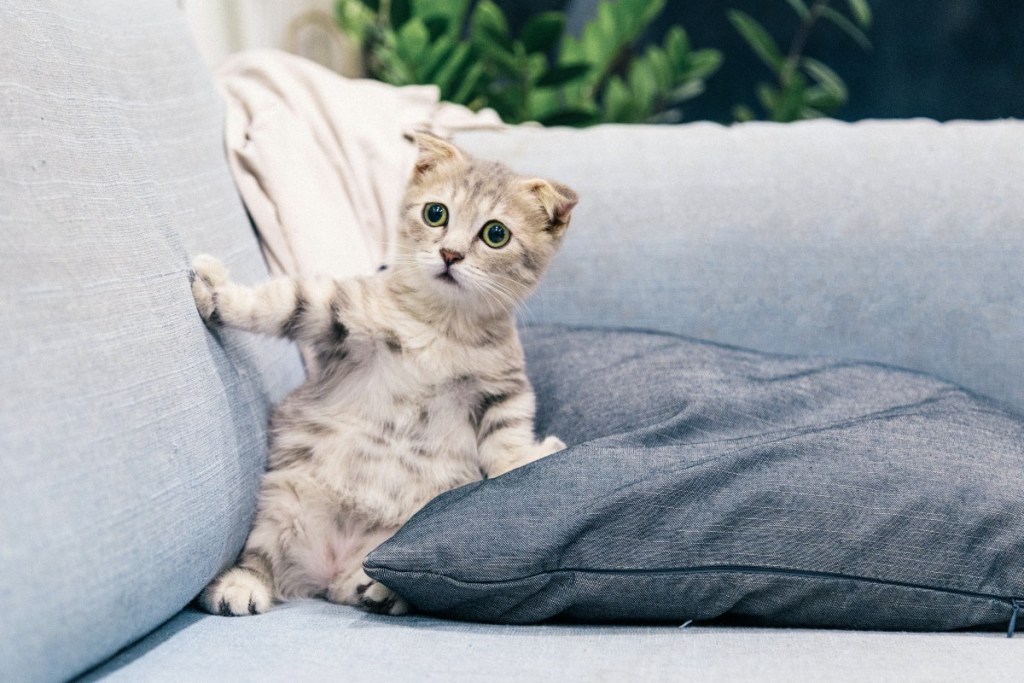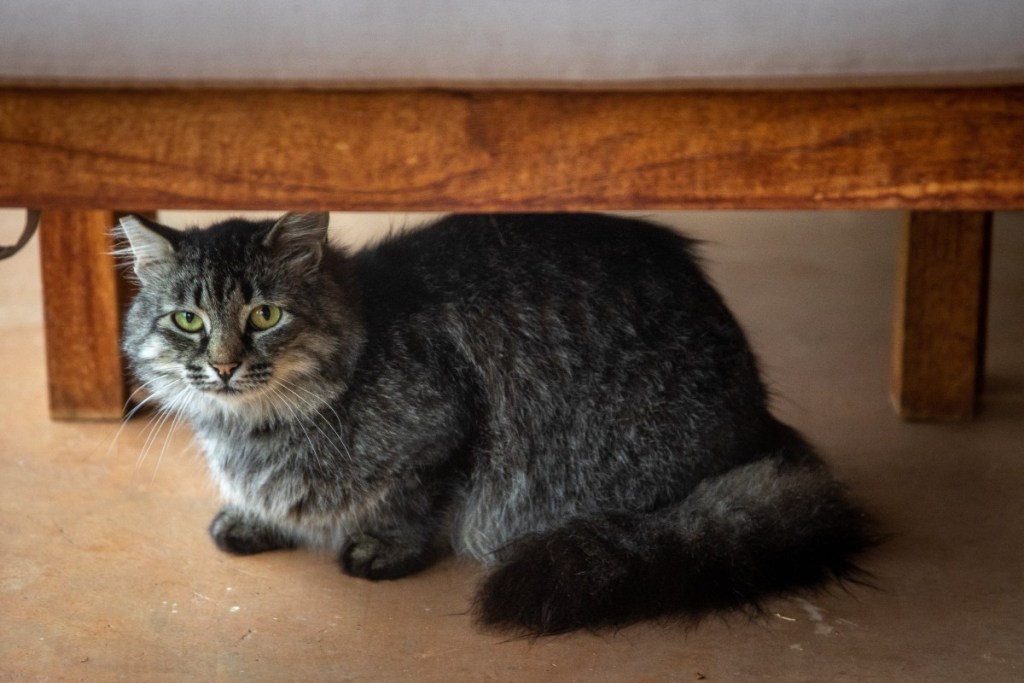Cats can be a bit hard to read, and they can make us question ourselves and our sanity at times. The way they’re portrayed in movies and cartoons – aloof, a bit snotty, plotting to kill their humans – doesn’t help.
- You walked into the same room they were already in
- You notice the “airplane ears”
- The cat is growling or hissing
- You’re getting the death stare
- She’s hiding
- She bats at you in the morning
- She declines your treat offer
- The cat cam shows it’s all fun and games – when you’re not around
- The cat stops bringing you presents
When your kitty stares at you, it’s natural to wonder, “Did I do something wrong? Is she thinking of all the ways she could cause my demise?”
The cat isn’t always upset with you. Sometimes, she’s actually telling you she loves you by looking at you, especially if she’s slowly blinking. However, cats will ring alarms when they’re none too happy with you. Here are 10 signs your cat is annoyed – some are more serious than others.

You walked into the same room they were already in
Your cat was curled up comfortably on your bed. The operative word is “your,” but Kitty doesn’t see it that way. She was sleeping peacefully and isn’t in the mood to snuggle, so you should probably (actually, definitely) see yourself out. She’s heard the hardwood floor makes an excellent alternative to your five-star mattress.
You notice the “airplane ears”
Joking aside, body language is a critical way our feline friends communicate with us. Your cat may let her ears do the talking. If your cat’s ears look like mini-airplanes (pinned back or to the side and flat), it may be a sign she’s annoyed or scared.
The cat is growling or hissing
Cats may not speak human, but they are vocal. If your feline hisses or growls , it’s a surefire sign he’s not happy about something. It’s best to give him some space to chill out.
You’re getting the death stare
Not all kitty stares are created equal. Some are signs of affection or curiosity. However, sometimes, when you think your cat is giving you the look of death, she really is. If your cat’s pupils are larger or smaller than usual, it’s a sign of anger or aggression. There are many reasons for these stares, and some may not have anything to do with you. Cats can re-direct aggression if they’re triggered by something else, such as a loud, scary noise. Other times, you may have messed up by forgetting to feed your cat.

She’s hiding
Some cats are shyer than others and hide more often. However, other cats will only hide if they’re so over you. Maybe it was your long, loud Zoom call with your boss, or perhaps the smell of the cookies you burned wasn’t to Kitty’s liking. Either way, she’s totally judging you and your colleagues from somewhere.
She bats at you in the morning
Do you seriously still think you’re allowed to sleep late? Cats are nocturnal and think it’s strange that you sleep at night. The fact that your kitty lets you catch some Zs until 5 a.m. is a gift in her mind. If you think you still have access to the snooze button, you’re sorely mistaken.
She declines your treat offer
Perhaps you spent hours on a salmon dish. It doesn’t have anything potentially toxic to cats, like onions, so you gleefully hand over a tiny morsel. You think your cat will be thrilled and maybe stop glaring at you. You thought wrong. If your cat makes her version of a heel turn, turns up her nose, flicks her tail, and walks out of the room, consider it her version of a bad Yelp review.
The cat cam shows it’s all fun and games – when you’re not around
It can be fun to “spy” on our pets using a camera or even a baby monitor hooked up to Wi-Fi. It can also be a major blow to our cat-parent egos. If the camera shows your typically-shy cat having a ball and happily prancing around the house when you’re not home, it’s a sign she finds you extremely annoying.
The cat stops bringing you presents
When cats leave half-eaten animals on the doorstep, it can be a sign they consider you family. While you may have found the gifts gross, admit it: You were a tad flattered. Suppose they suddenly stop. Could it be a sign your cat is annoyed with you? The tongue-in-cheek answer is yes. However, it could be as simple as a new collar with bells tipping off prey.
Cats can get irritable, just like us. True signs your cat is annoyed include pinned-back “airplane” ears, hissing, growling, or large or small pupils. Sometimes, you may think it’s something you did – and it could be. Perhaps your cat is upset that you haven’t fed her at her normal time and is hungry, or you moved her from her comfortable spot on the sofa so you could sit down. Other times, the annoyance may be out of your control, such as a stray cat walking into your yard. Keeping a schedule and redirecting your cat to a favorite toy when they are annoyed can help mitigate aggressive behaviors. Speak to a vet if your cat is habitually irritated because there may be a medical issue at play.



